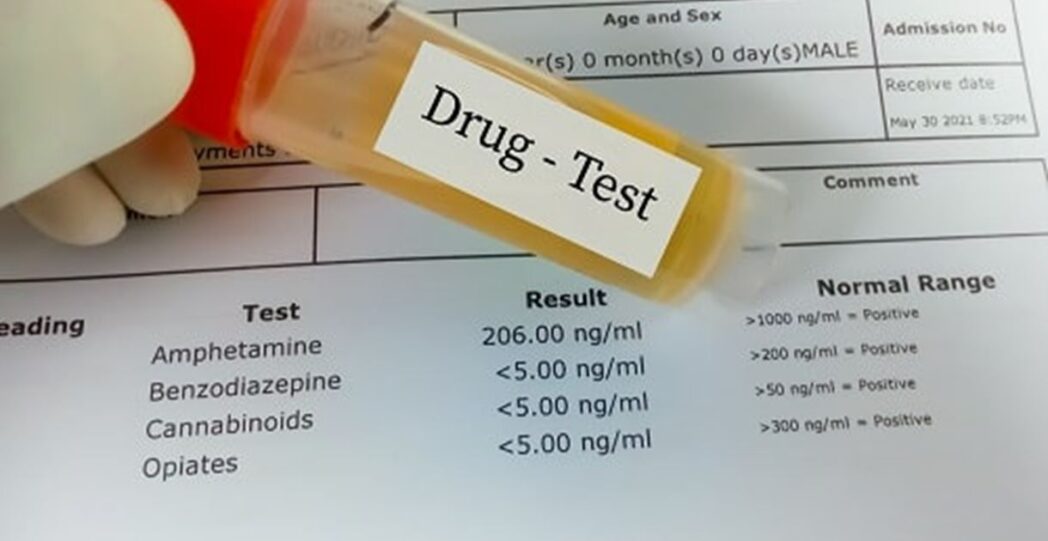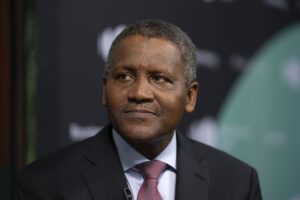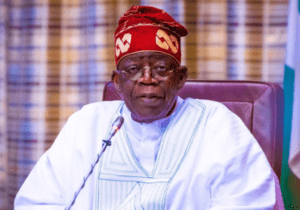

Drug tests beyond university admissions
By Emmanuel Onwubiko
As part of the broader strategy to contain the effects of drug addictions by students and other youngsters, the National Drug Law Enforcement Agency (NDLEA) recently mooted an idea or rather a proposal to make drug testing mandatory for university admission which is widely regarded as a welcome development.
Spearheaded by Hajia Fatima Abiola-Popoola, the Commandant of NDLEA in Kwara State, this initiative seeks to address the rising menace of drug abuse among Nigerian youths, particularly students.
Considering the alarming statistics on drug abuse in the country, the agency’s call for drug testing as a criterion for university admission is both timely and necessary. However, while this proposal is commendable, it should not be limited to students alone. Instead, it should include anyone seeking elective or appointive positions in Nigeria. If implemented holistically, the NDLEA’s initiative could be a game-changer in the fight against drug abuse, with far-reaching implications for the nation’s future.
Drug abuse remains a significant threat to Nigeria’s societal values, public safety, and the potential of its youth. The rampant use of drugs among students has severe consequences for their academic performance, social behaviour, and prospects. However, this issue extends beyond the youth, affecting all segments of society, including those in positions of power and influence. By extending mandatory drug tests to all spheres, particularly leadership roles, we can create a drug-free society and restore confidence in our leaders.
Introducing drug tests as a prerequisite for university admissions serves several critical purposes. Firstly, it acts as a deterrent, discouraging students from experimenting with drugs due to the fear of being denied admission. Secondly, it provides an opportunity for early intervention for those already using drugs, allowing authorities to offer counselling and rehabilitation before the situation worsens. The alarming rise in drug use among students is not just a troubling statistic; it reflects the broader societal challenges Nigeria faces today.
A 2018 survey revealed that 14.3 million Nigerians use drugs, with one out of seven people in the country being a drug user, and one out of four drug users being a woman. This data underscores the gravity of the problem and highlights the urgent need for comprehensive measures to address it. By making drug tests mandatory for admission, universities can play a pivotal role in curbing this trend, ensuring that the next generation of graduates is not only academically competent but also mentally and physically sound.
While the focus on students is essential, it is equally important to address drug abuse among those who hold or aspire to hold leadership positions. Leadership, whether in government, corporate, or social spheres, requires sound judgement, integrity, and responsibility. These qualities are often compromised when an individual is under the influence of drugs. Therefore, extending mandatory drug testing to all candidates seeking elective or appointive positions is not only logical but necessary.
Imagine a scenario where every political candidate, before contesting an election, must present a certificate issued by the NDLEA, certifying that they are drug-free. Such a requirement would not only ensure that our leaders are of sound mind but also send a powerful message to the public about the importance of a drug-free society. The same standard should apply to those seeking appointments in government or corporate entities. By making a drug-free certificate a prerequisite for leadership positions, we can begin to rebuild trust in our institutions and ensure that those in power are genuinely fit to lead.
The issue of drug abuse among students and leaders is further complicated by its connection to violent cultism, particularly in educational institutions. Cultism has become a significant challenge in Nigeria, with these groups often involved in various criminal activities, including violence, extortion, and even murder. Drugs play a central role in the operations of these cults, fueling the violent tendencies of their members and making them more aggressive, irrational, and dangerous.
If drugs were not involved, it is unlikely that cultism would have reached the alarming levels it has today. The NDLEA’s proposal to introduce drug tests for students indirectly addresses the issue of cultism by cutting off one of its primary enablers. By ensuring that students entering universities are drug-free, we can significantly reduce the influence of drugs on campus, thereby weakening the hold of cults and promoting a safer academic environment.
The NDLEA, under the leadership of Brigadier General Mohamed Buba Marwa (Retd.), has made significant strides in the fight against drug trafficking and abuse in Nigeria. The agency’s recent successes, such as the arrest of a Vietnam-bound businessman at the Nnamdi Azikiwe International Airport in Abuja for ingesting 88 wraps of cocaine, and the interception of 65.80 kilograms of Loud (a synthetic strain of cannabis) at the Lagos airport, demonstrate its vigilance and commitment to curbing drug trafficking. Additionally, the NDLEA’s operations have led to the seizure of over 892,400 bottles of codeine-based syrup in Rivers State. These successes are not isolated incidents but part of a broader strategy to dismantle drug trafficking networks and reduce the availability of illicit substances in the country.
However, the NDLEA’s work is far from over. To sustain and build on these achievements, several additional measures should be considered. First, strengthening community engagement is essential. The NDLEA should intensify its outreach programs, particularly in rural and semi-urban areas where drug use is often hidden. By working closely with community leaders, religious organisations, and schools, the agency can create a network of support that discourages drug use and encourages rehabilitation.
Second, expanding intelligence gathering is crucial. As drug traffickers become increasingly sophisticated in their methods, the NDLEA must invest in advanced intelligence-gathering techniques, including the use of technology, informants, and international collaboration. This will enable the agency to anticipate and intercept drug shipments before they reach their destinations.
Third, enhancing rehabilitation programs is vital. While law enforcement is crucial, it is equally important to focus on rehabilitation. The NDLEA should work with the Ministry of Health and other stakeholders to expand rehabilitation centres across the country. These centres should provide not only medical treatment but also psychological counselling and vocational training to help individuals reintegrate into society. Fourth, implementing stricter penalties for drug-related offences is necessary.
The legal framework surrounding drug trafficking and abuse needs to be revisited, particularly for those in leadership positions. Stricter penalties will serve as a deterrent and underscore the seriousness of the crime. Finally, international cooperation is key. Drug trafficking is a global issue that requires international collaboration. The NDLEA should continue to strengthen its partnerships with drug enforcement agencies in other countries, particularly those in West Africa, to share intelligence and coordinate operations.
The NDLEA’s proposal for mandatory drug tests for university admissions is a step in the right direction, but it should not stop there. To effectively combat the menace of drug abuse and its associated ills, this initiative must be broadened to include all sectors of society, particularly those in leadership positions. By making a drug-free certificate a requirement for admission, appointments, and elections, we can begin to rebuild a society that values integrity, responsibility, and the well-being of its citizens.
The fight against drug abuse is not just the responsibility of the NDLEA or the government; it is a collective responsibility. Parents, educators, religious leaders, and indeed every Nigerian must play a part in this battle. We must all commit to a future where our students, our leaders, and our communities are free from the scourge of drugs.
Comrade Emmanuel Onwubiko is head of the HUMAN RIGHTS WRITERS ASSOCIATION OF NIGERIA and was NATIONAL COMMISSIONER OF THE NATIONAL HUMAN RIGHTS COMMISSION OF NIGERIA.




